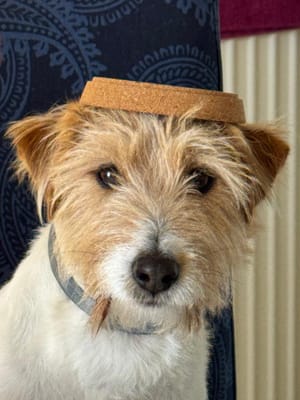I used to record a podcast with a certain T.J. Cosgrove called 1857. It's still out there if you're interested.
TJ has a brain the size of a planet and a cracking sense of humour, but his superpower is his curiosity. He's interested in stuff. All sorts of stuff. We still chat, we just don't record it anymore.
Whilst he is a fully-fledged adult, a father, no less, he is, to my ageing eyes, a whippersnapper. He's never known a world without computers. Somehow or other, our conversation wended back to my first foray into financial services.
I worked in a Bureau de Change in Paris.
This was 1988, not the middle-ages. There were computers in the business, in the head office. Not for me, though, I worked on the counters. At the tills. Mostly we served tourists visiting Paris, changing their home currency into French Francs (deducting a hefty commission, of course).
Our secret weapon was the "Forde MoneyChanger". I describe it as a souped-up printing calculator. It calculated the exchange, deducted the commission and printed a receipt for the customer. It maintained balances of all the stocks. When we finished a shift, it spat out an enormous receipt listing all the balances which we checked the money against.
With everything balanced, the next duty was to transcribe certain totals onto an A3 pre-printed pad; the much revered "Daily Reconciliation". Currency exchange was big business. We had shops that might have six separate till shifts entered onto the recon'. As a branch manager, I'd sit at the recon' and "balance it". You soon learned to first verify every transcribed number. As a cashier finishing a shift, the recon was the only thing between you and a cold beer, and the numbers were seldom right. Then, you checked the maths, to make sure that each shifts numbers balanced. Now, you were ready to total everything up, and then "balance the shop". I lost count of the times I spent the best part of a day trying to make all the sums add up.
Guess what we did next?
Head office called, and we relayed to the totals to a colleague, who put the information into one of those new-fangled computer things. Into a spreadsheet on a program called Lotus 1-2-3.
What could possibly go wrong?
Here's the thing though. That manual system was running several chains of bureaux de change across the world. The Forde machine was incredibly robust; you plugged it in, and it worked. You could train someone how to use it in an hour. As computers became ubiquitous, the bureaux de change resisted. I took these cracking little machines all over Eastern Europe.
The machines were designed in Ireland. A chap called Denis Forde. I think he was in business with his brother. I met him once, he was a charming fellow, the epitome of the whacky inventor. I'd lay money that he knocked up the first designs in a shed. He was retired when we met, except people like me kept bothering him for spare parts.
People like you support my writing. Sign up for my free newsletter. Become a paid member, and get access to all my writing, including anything I publish, and a Member's Slack.


